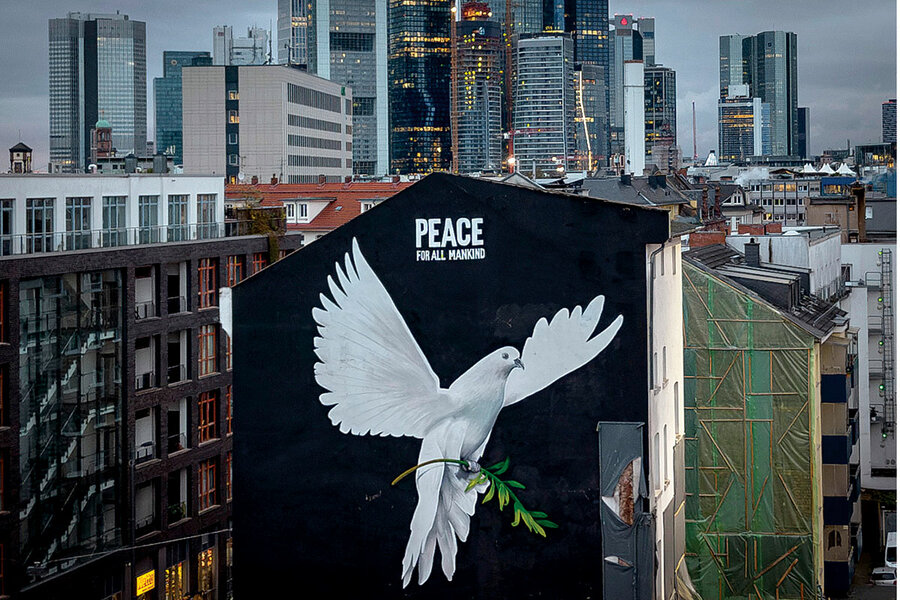The relentless march of progress
Loading...
For many, 2023 was a disquieting year, marked by war, natural disaster, and political turmoil. And yet, in this week's cover story, former Monitor Editor Marshall Ingwerson takes a decidedly different view.
Rather than dwell on the play-by-play of suffering in 2023, Marshall challenges readers to widen their view and consider the relentless march of progress that has also unfolded, not just in the past year, but throughout all of human history. In essence, the story is a reminder of just how far humanity has come.
By practically every measure – from health care and the environment to economic security and global inequality – people's lives have steadily improved over time, as Marshall outlines in detail. That progress is rarely linear, of course: New challenges and horrors seem to arise at just as steady a clip. But neither truth negates the other.
"There are people threatened with bloody violence right now in Gaza and in Ukraine. And for the people who are in the middle of it, that’s as bad as it’s ever been," he says. "But we can also note that there has been a lot less of that [warfare] than there has been throughout history. We should look at why that is and what has worked and brought that about, and build on it."
Marshall started tracking progress in earnest during his tenure at the Monitor. He began giving talks to groups such as the League of Women Voters about the valuable lessons waiting to be gleaned from the victories of the past.
Take climate change. While humanity has never faced a challenge of this scale before, it has successfully confronted problems that are "similar in kind if not in degree," Marshall says.
"I was a distance runner in Southern California back in high school in the 1970s," he says. "In the fall, we would regularly have practice canceled because the air was unsafe. This happened more than 100 times a year, every year, in the Los Angeles Basin throughout the '50s, '60s, and '70s."
Since then, clean air regulations have largely cleared LA's infamous smog. Similarly, the once-catastrophic hole in the ozone layer is expected to fully heal within just a few decades, due to concerted global efforts to eliminate the use of ozone-depleting chlorofluorocarbons.
Both of these challenges "required sacrifice in terms of new cleaner technology, and it turned out it didn’t kill the economy like many people thought it would," Marshall says. "There are a lot of successes in the past that we can draw from – and we are going to have to draw from them."
While some believe that change can only be inspired by fear and discomfort, Marshall argues that persistence and hope are the true drivers of progress.
"Civilization is a collective learning," Marshall says. "And we’re figuring things out and getting better as we go."








